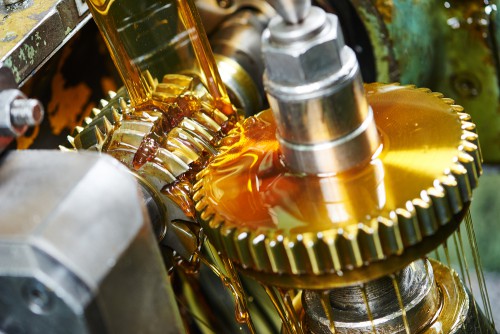How Quality Oil Lubricants Can Reduce Operational Expenses

We have all heard the phrase, “You get what you pay for” but in terms of reducing operational expenses this is often the case. Premium lubricants utilise specially selected base oils and additives, are compliant with OEM specifications and manufactured within specialised blending plants.
Analysing Lubricant True Costs
The true cost of a lubricant is not just a simple case of pence per litre but how much the product impacts production, downtime, maintenance, and spares. A classic example would be compressor oils where the true cost might be as follows:
| Spares |
Oil Type |
||
|
2,000 hr |
4,000 hr |
8,000 hr |
|
| Air end filters |
4 |
2 |
1 |
| Oil changes |
4 |
2 |
1 |
| Oil filters |
4 |
2 |
2 |
| Maintenance visits |
4 |
2 |
2 |
Whilst the cost of the 8,000-hour oil maybe substantially higher, the lower overall maintenance and downtime costs would be dramatically reduced. This of course would be complicated further if we introduce an oil of lesser quality resulting in premature oil filter blockages, odours from oxidised oil, increased service call outs and in the worst-case scenario, damage to expensive airends in screw compressors.
Whilst the above may seem an extreme example, it does outline how lubricants can have hidden costs other than the simplistic pence per litre viewpoint.
Whilst compressor oils are not the only example, they reveal how the product may behave in the application. Hydraulic oils offer another example where the products quality and performance can have a profound effect on productivity as well as operational costings.
Issues Regarding Hydraulic Oils
Hydraulic oils have ypically been commoditised and generally not regarded in the same way as other lubricants; unfortunately, this is far from the truth as will be discussed.
Whilst hydraulic oils may appear to be simple fluids, they are responsible for many applications from fluid drives, cranes, crushers and many more applications. From a formulation point of view, they are comprised of base oils, anti-wear additives, defoamers, pour point depressants and additives to prevent oxidation and corrosion. As with all things, the performance of a fluid is related to the base materials and if cheaper low-quality products are used, or even worse, omitted – then the resultant fluid can be unfit for purpose.
Hydraulic oils allow the transfer of power via pressure resulting in work, typically shown by the movement of a piston which in turn is moving a piece of equipment. As the power transfer medium, hydraulic oils must be free from entrained air and be able to cope with heat generation which inevitably arises through compression cycles, heat transfer from pumps and energy losses within the hydraulic circuit. Whilst various additives can be used, the primary formulative ingredients are base oils, which if poorly selected will reduce the working life of the fluid.
All base oils are subject to thermo-oxidative degradation and stabilised by additives; however, those of lesser or questionable origin cannot rely on this stabilisation to obtain lifetimes given by superior feedstocks. Entrained air, foaming and emulsification are also influenced by base oil selection all of which adds up to reduced working lifetimes, spongy hydraulics, and higher operating costs.
Lesser hydraulic fluids are more likely to create issues in use resulting in repairs and downtimes. Lesser hydraulics will not be filtered during production and therefore have a higher potential to cause abrasive wear. Poorly selected base oils will have a higher propensity to degrade resulting in deposits through the system especially on valves leading to operation problems. Entrained air not only impacts on hydraulic response but also increases heat within the system, as they collapse under pressure causing damage to metal surfaces, all of which not only reduce fluid lifetimes but will result in unplanned maintenance.
Summary
Whilst there are many examples of how lesser quality oils can negatively impact on production, the message in all applications is to invest in your fluid mechanics. Short term savings will eventually result in higher repair bills and downtime, all of which far outweighs any short-term savings.
Exol Lubricants will always ensure its formulations are made to the strictest of standards, tested at all stages of production and backed up by our guarantee of quality. Exol Lubricants has a wealth of lubricant knowledge available through our friendly staff who can be contacted directly or email backed up by our online lubricants database available at https://www.exol-lubricants.com/oil-check/ No matter what your business sector or indeed an enthusiast, we are always happy to help with all your lubrication needs.

